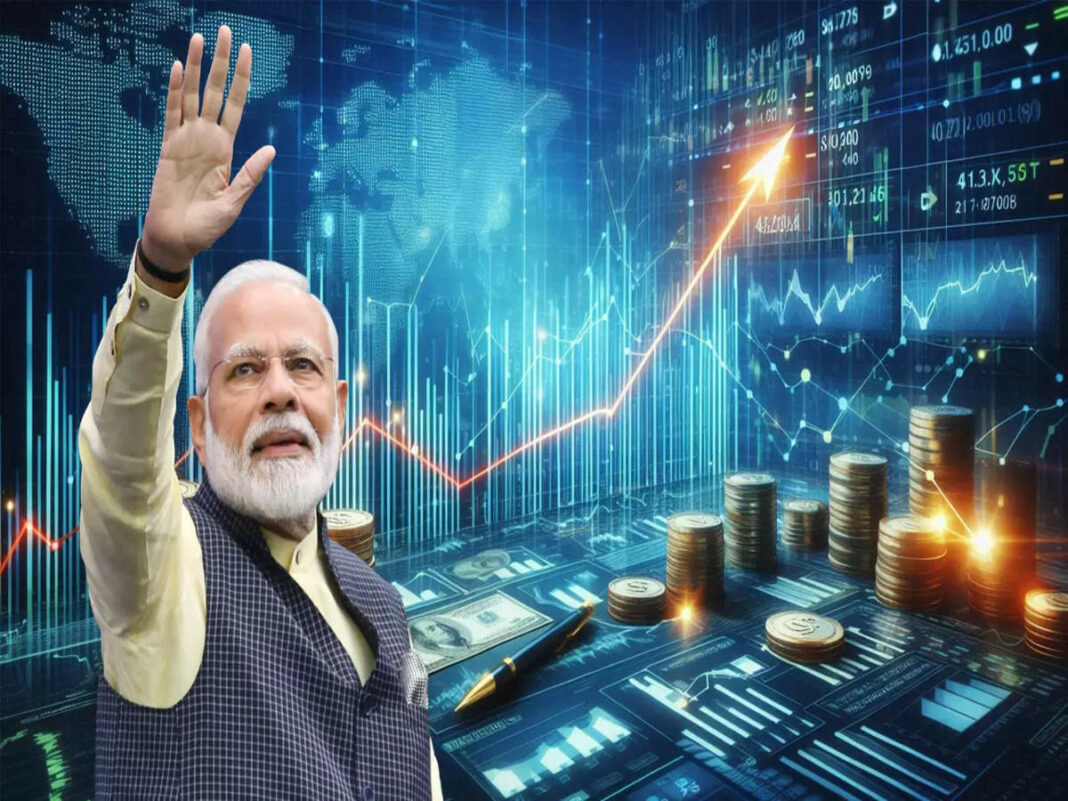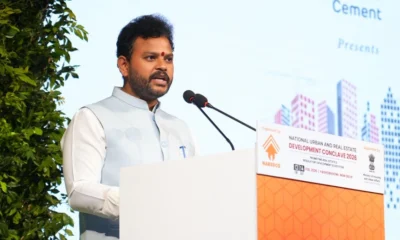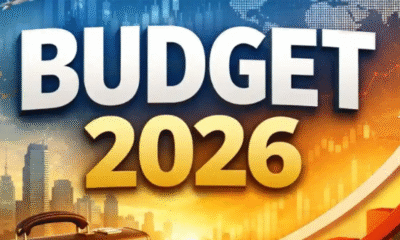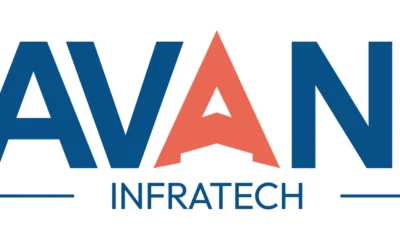News
Modi 3.0: Expectations of the Real Estate Sector from the New Government

May 6, 2024: The anticipation is over. The NDA, led by Prime Minister Narendra Modi, has secured victory in the 2024 general elections. With the current administration returning to power, stakeholders in India’s real estate sector are optimistic about obtaining the long-awaited industry status for their rapidly growing sector. Realtors, who have been advocating for this recognition for some time, plan to present their request to the new government ahead of the upcoming budget.
“The demand for industry status has been extensively discussed with the authorities over the past several quarters. While the government has agreed to this demand in principle, with the new government now in place, we hope it will gain momentum. Additionally, stakeholders are looking for resolutions on issues such as amendments in regulations and increasing the limit for affordable homes.”

Sanjay Sharma, Director of SKA Group, predicts that the real estate sector will continue to thrive in 2024, similar to the previous year. He believes that raising the exemption limit on home loan interest will undoubtedly attract more home buyers. Tax exemptions would benefit both home buyers and the real estate sector. Furthermore, Sharma emphasizes that the real estate sector, being one of the largest contributors to the country’s GDP, should now be granted industry status.

Manoj Gaur, Chairman & Managing Director of Gaurs Group and President of CREDAI NCR, said “The sector is looking for the reintroduction of the interest subvention scheme to revive mass housing. Secondly, we are also seeking a redefinition of affordable housing, and the limit for it should be raised from 90 sq m in terms of space to Rs 45 lakh in terms of pricing. It will be a much-needed intervention as a considerable demand exists in the affordable housing segment. And lastly, we are also looking forward to announcements on GST input credit to stimulate growth and foster a more resilient real estate environment,” he said.

Ankit Kansal, Managing Director of 360 Realtors, said, “In Modi 3.0, the government is expected to put increased attention on Indian real estate through a more concentrated policy framework, demand creation, and infrastructure push. Indian real estate is currently sized at around USD 300 billion and is slated to reach USD 1.3 trillion by 2034, as per the estimates by CREDAI. This also means the next five years will be essential for the real estate market’s long-term growth and evolution. The government will continue to drive infrastructure with the deployment of new cities, urban corridors, industrial hubs, large-scale logistic projects, etc., which will give a huge impetus to organic demand. The time ahead can also see large-scale policy shifts such as lowering taxes, deploying single window clearance, project-level FDIs, reduced stamp duties, etc. The government understands real estate’s critical role in the Indian economy through large-scale employment generation, support to multiple industries, and multiplier effect. Consequently, Modi 3.0 can see some ground-breaking incentives and policy push for the sector.

Kushagr Ansal, Director of Ansal Housing, outlined the real estate sector’s expectations from the new government. He said, “The real estate sector has high expectations from the upcoming government. Key priorities include granting industry status to real estate, facilitating easier financing access and promoting growth. Developers also seek revisions in regulations to streamline project approvals and reduce bureaucratic delays. Enhancing infrastructure development and connectivity is crucial to support urban expansion and boost property values. Additionally, there is a strong call for increased incentives for affordable housing projects to meet the growing demand. Overall, the sector anticipates policies that foster transparency, reduce costs and stimulate sustainable growth in the real estate market.”

Nayan Raheja from Raheja Developers said, “The first thing we expect is the industry status and a single-window clearance system for the real estate sector. At the same time, an incentive that can reduce the price for first-time homebuyers will make homeownership more accessible to the masses. Reduction in input costs, particularly for essential materials such as steel and cement, low fuel costs and additional tax concessions for homebuyers are some measures we expect from the new government.”

Neeraj Sharma, Managing Director of Escon Infra Realtor, is optimistic about significant progress in the real estate sector with the advent of Modi 3.0. He anticipates strong policy reforms that will streamline the regulatory framework and enhance transparency, creating a more investment-friendly environment. The continuation and expansion of initiatives like Housing for All and the Smart City project are expected to be crucial in promoting growth and innovation within the industry. He is confident that the new government will prioritize infrastructure development, encourage green building practices, and address key challenges such as land acquisition and financing, thereby elevating the real estate sector to new heights.
Pawan Sharma, MD of Trisol Red, states that with the advent of Modi 3.0, the real estate sector anticipates a substantial push toward advanced infrastructure development, streamlined regulations, and improved access to funding. These changes are expected to accelerate the market, stimulate growth, and attract both domestic and international investors.

Ajendra Singh, Vice President of Sales & Marketing at Spectrum Metro, states that the real estate sector is optimistic about Modi 3.0, anticipating more streamlined regulations and incentives to boost affordable housing and infrastructure projects. He hopes the new government will prioritize policies that attract foreign investment and enhance transparency in the real estate market, fostering growth and stability.
Lakhram Goyal, Managing Director, Worldwide Realty
As real estate developers, we expect a stable government under Narendra Modi’s third term to create a conducive environment for growth and development in our sector. We anticipate consistent and transparent policies that simplify regulations and reduce bureaucratic hurdles. A stable government can help ensure the implementation of key infrastructure projects, improve urban planning, and provide incentives for affordable housing. We also expect continued support for digitization and technological advancements in real estate transactions. Economic stability, along with favorable tax policies, can boost investor confidence and attract both domestic and international investments. Additionally, we look forward to initiatives that enhance ease of doing business, streamline approval processes, and promote sustainable development. Overall, a stable and proactive government can drive growth, innovation, and prosperity in the real estate industry, benefiting developers, investors, and homebuyers alike.

Mohit Mittal, CEO, of Mores Techno Pvt Ltd.
As a real estate investment advisory firm, we expect a stable government under Narendra Modi’s leadership for the third time to continue fostering a favourable environment for the real estate market. Stability in governance brings confidence to investors, leading to increased investment in property. We expect the continuation of reforms such as the Real Estate (Regulation and Development) Act (RERA) and tax incentives for home buyers, which enhance transparency and boost buyer confidence. Additionally, stable economic policies are essential to maintain steady interest rates and inflation control, which directly impact mortgage rates and borrowing costs. A stable government provides the predictability and confidence necessary for the real estate market to thrive, benefiting both our clients and our business.”

Pradeep Aggarwal, Founder & Chairman, of Signature Global (India) Ltd said, “In order to achieve the goal of ‘Viksit Bharat’ Real estate and Infrastructure would be going to play a crucial and significant role. As India reinforces its position as the fastest-growing large economy in the world, with a remarkable GDP growth of 8.2% in FY 24, surpassing the previous year’s 7.0% growth, we are confident that the new government will sustain its focus on real estate and infrastructure development. These sectors have a profound multiplier effect on the economy.
Pradeep Aggarwal added, “The real estate sector has seen significant growth in recent years and is poised to reach new heights. We hope the new government will extend income tax benefits on home loans under the new tax regulations. Additionally, we anticipate the government will address the challenges faced by the real estate sector and lead efforts to convince the GST Council to ease the burden of Goods and Services Tax (GST) on both developers and consumers. This continued focus will further strengthen India’s robust economic momentum and resilience.”
-

 News2 weeks ago
News2 weeks agoMumbai’s Largest Trimandir Opens in Thane with Grand Three-Day Pran-Pratistha Ceremony
-

 News2 weeks ago
News2 weeks agoBudget 2026: Real Estate Sector Awaits Real Reform, Targeted Relaxations For Boost
-

 News4 weeks ago
News4 weeks agoVianaar Homes Earns Great Place to Work® Certification in India
-

 News2 weeks ago
News2 weeks agoUnion Budget 2026: Infrastructure-Led Growth Sets Stage for Real Estate Expansion Beyond Metros
-

 News3 weeks ago
News3 weeks agoCommercial Leasing Trends Evolve to Keep Pace with Development in Noida, Greater Noida
-

 News4 weeks ago
News4 weeks agoRASA Group Introduces AVANI Infratech, Focused on Residential, Commercial and Industrial Land Assets
-

 News2 weeks ago
News2 weeks agoNCDRC Directs District Magistrate to Take Over Control of Much Delayed Greater Noida Project
-

 News3 weeks ago
News3 weeks agoHousing.com Expands Footprint to 15 Tier II Cities, Strengthening Presence in Emerging Residential Markets






























